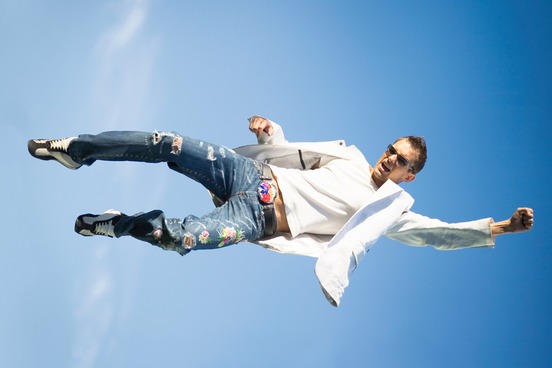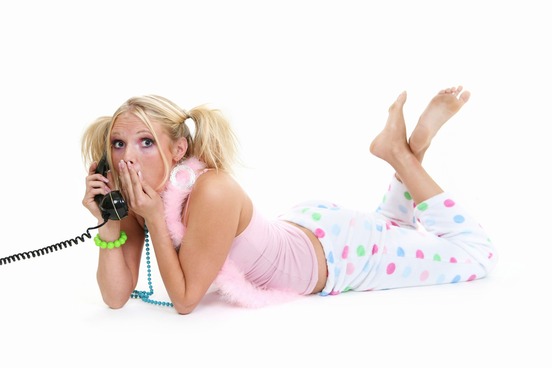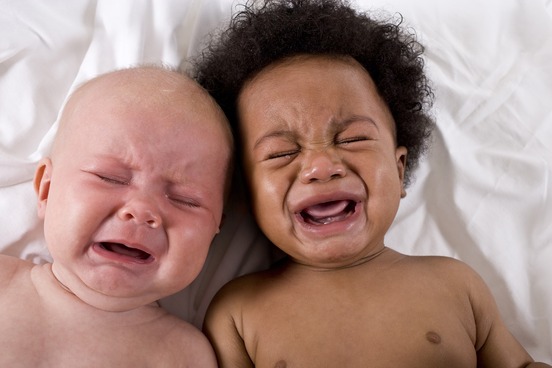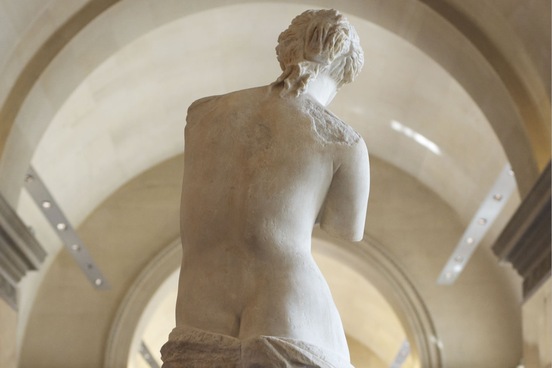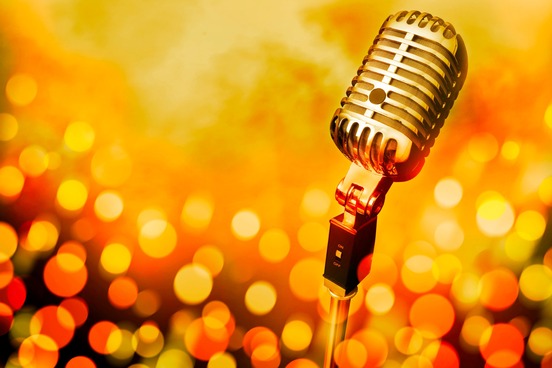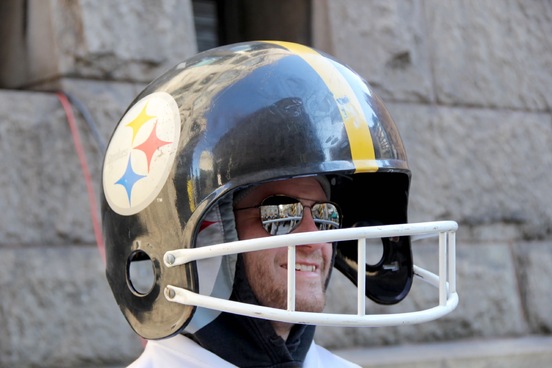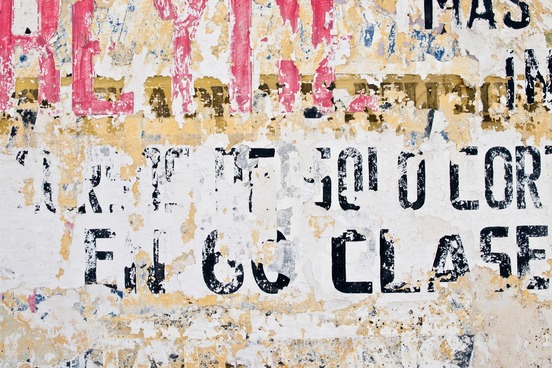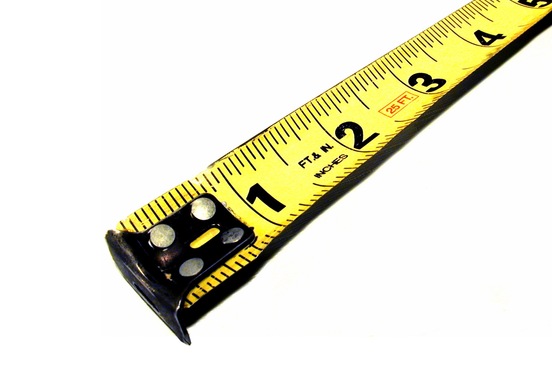What are the world’s favorite words? It’s a great question because there’s no one way to answer it. Everyone can – and does – have an opinion. If we turn to great authors for inspiration, J.R.R. Tolkien and Edgar Allen Poe both claimed cellar door as the most beautiful word combination in the English language. Shakespeare was particularly sweet on sweet, while Joseph Conrad was obsessed with impenetrable.
We can tell an author’s favorite pet words quite easily by the frequency with which they use them. Finding the public’s most popular words presents a different challenge. The kind of people who write in to the BBC and Merriam-Webster tend to be, as the latter puts it, vocabularians (people who make up new words) or hardcore dictionary devotees.
If we look at the entries to Babbel’s recent My Favorite Word competition, where people were invited to make a short video about their favorite foreign word, some interesting trends and patterns emerge.
Here’s a video….
Many words were seemingly chosen because they’re fun, quirky or lexically appealing. Papagei (“parrot” in German), porridge, ludicrous, twinkle, flip-flop, pompon (French for “pompom”) and ananas (“pineapple” in various languages) are all quite playful. Staubsauger or ‘dust-sucker’, the German word for vacuum-cleaner, deserves an honorable mention. This trend should come as no surprise: when you learn a foreign language you often appreciate its idiosyncrasies more than a native speaker would.
Unique and untranslatable words were also very popular, with a particularly German focus. Two entrants chose Fernweh, a German word that means longing for faraway places – and another chose a less well-used synonym, Wanderlust. Schadenfreude made an appearance, as well as Weltanschauung (a particular world view) and Kummerspeck, excess weight gained from emotional overeating – literally ‘grief bacon’. Other untranslatable words included mångata, the roadlike reflection of the moon on water, and inshallah.
There were a great many videos to do with love and happiness: English words included happy, heart, together, peace, and hope, German had heiraten and Liebespaar (“to marry” and “a married couple”), while Spanish speakers contributed juntos and abrázame (“together” and “hold me”). Naturally there was a cat video for the word cute.
A few entries featured clever multi-language puns and wordplays. Who knew that tigerkaka meant marblecake in Swedish? There was a play on llama involving como te llamas and cute furry animals, and in another video one man became Zwillinge (twins in German), then Drillinge, Vierlinge and finally Mehrlinge. Poubelle, the French word for rubbish bin, combined a bell and a gracefully floating bowel movement.
We should bear in mind that a competition where people choose their favorite word in their own language would have given very different results.
However, the flip side is that here we see what draws people to words in other languages. There is a tendency to gravitate towards difference, towards words that have meanings or sounds that are unfamiliar. Just as we love food from other cultures, so too do we fall in love with the exotic sounds and concepts of foreign tongues. If you’re a native speaker, you might be able to look at these words with fresh eyes – and discover that ludicrous is, indeed, ludicrous.
[fruitful_sep]
James Lane was born in Sydney, Australia. After completing his degree in Media and Communications, he moved to Vietnam where he taught English and curated the young learner summer program at a language school in Hanoi. He has worked as an independent theatre producer and film assistant director.
3 minute read
Do you ever find yourself chatting with a bilingual friend in English, but then throwing in a word in that other language? It usually happens when you want to communicate a concept that English just doesn’t capture quite right. There is something great about the way learning a new language can expand the ways in which we understand the world. We asked our staff members to share their favorite words in other languages – check them out!
The conceptual words
A number of staff members shared words that succinctly express a concept in a way that English can’t. Check these out:
1. Gezellig
“People in Holland take the concept of gezelligheid seriously and strive to have a lot of their restaurants, pubs, public spaces and homes reflect this. It’s as much of an attitude as it is an aesthetic,” explained Kate from Au Pair USA.
2. Natsukashi
Michael McHugh, Vice President of Au Pair USA, likes this phrase because “it is an expression of experiencing nostalgia for a time, place, or thing. For example, you eat a McDonald’s cheeseburger for the first time in 20 years, but you instantly recognize the taste from your past. The taste is ‘natsukashi’.”
“It has an emotional connotation, but not too much. It is emotionally stronger than saying ‘I remember that time, place, or thing’ but is much lighter than saying ‘I am nostalgic for that time, place, or thing’ or ‘I miss that time, place, or thing’.”
3. Madrugada
James Bridge, our Working Abroad Program Manager, chose this word that refers to the early hours of the morning that we often still consider late night. We don’t have an Engish equivalent!
4. Achachai
Ani, on our Marketing team, said that this word is “fun to say and seems to articulate feeling cold better than ‘brrr!’”
Auditory bliss
Unsurprisingly, many people love words that are fun to say and listen to!
5. Ouais
Nabil, from our Career Training department, says that this word is pronounced like “way”. “I like the way it sounds,” he said, “especially when French speakers say ‘Ah, Ouais!’”
6. Murciélago
“It’s so fun to say!” said Melissa Quintero, our Work & Travel Program Coordinator.
7. Vacilón
Megan from Au Pair USA loves the sound of this word.
8. Se acicala
Megan is also a fan of this word!
9. Calabaza
Liz from Work & Travel especially loves the way that Spanish speakers in Spain pronounce this word.
10. Pamplemousse
Au Pair USA’s Megan thinks this word is just fun to say!
Love is in the air
11. Mi amore
One of our staff members loves this phrase simply because she’s “quite the romantic!”
12. حبيبتى
“It’s sweet and fun to say,” said Meggie from Au Pair USA.
Flexibility and versatility
These are qualities that many of our respondants cited as a positive characteristic of a word.
13. عادي
Megan from Au Pair USA likes the versatility of this word. “It has multiple meanings and you can use it in many different contexts,” she said.
14. Magari
Charlotte from Au Pair USA said that she likes this word because it has “so many different meanings, and there’s no English equivalent!”
15. خلص
Megan, on our Au Pair USA team, loves this word because, “you can use it in almost every sentence.”
Compound words
16. Oachkätzlschwoaf
Michael Gates, our Au Pair USA International Recruitment and Placement Manager, likes this word best because “It’s a great phonetic example of the Steierisch dialect in southern Austria.”
17. Sehenswürdigkeiten
Tanya Burovtseva, our Work & Travel USA Experiential Learning and Support Coordinator likes this German word best. “It’s super long and it took me a few attempts to pronounce it once I saw it for the first time. I was also very proud once I learned how to spell it by heart,” she said.
Over the years, our editors have learned which words stand out as people’s all-time favorites — generally because of what those words mean and how they sound. We hope you enjoy this selection.
Definition:
a throwing of a person or a thing out of a window; or a usually swift expulsion or dismissal
Example:
«If you were expecting Michael Steele to stay angry at Republicans over his defenestration from the [Republican National Committee], you were wrong. In the weeks after he lost the job, Steele has appeared on MSNBC and Fox News…» — David Weigel, Slate.com, Jan 31, 2011
About the word:
Defenestration is familiar to students of history, many of whom are charmed to learn that the Defenestration of Prague in 1618 marked the start of one phase of the Thirty Years’ War.
In that defenestration, three Roman Catholic representatives of the Hapsburg rulers were thrown from the window of the Council Room at Prague Castle by angry Protestant Bohemians. The Catholics survived their fall, possibly because they landed on manure.
Defenestration comes from Latin (de- means «from; down, away;» and fenestra means «window»). The word first appeared in English in 1620.
Definition:
a silly flighty person
Example:
«I was very good at being a girl and I’m not quite so good at being a woman. I was good at being quite flighty and dippy and a flibbertigibbet. But I don’t feel so convincing as a responsible human being.» — Actress Emily Mortimer interviewed in The Telegraph, September 19, 2005
About the word:
Flibbertigibbet may have been coined to imitate the sound of idle chatter. The word first appeared in Middle English as flepergebet, and it has enjoyed a number of senses: gossip; chatterer; demon; imp. Shakespeare gave flibbertigibbet its current spelling, but the modern meaning only dates to the end of the 19th century.
Definition:
disturbance; fuss
Example:
«‘Glee’ Cast Members React to GQ Kerfuffle» — Headline on WashingtonPost.com, October 21, 2010
About the word:
Kerfuffle is the most recent coinage on this list, dating to 1946. It may be an alteration of the Scottish carfuffle, from the Scottish Gaelic cearr («wrong; awkward») plus fuffle («to become disheveled»).
Definition:
fussy about small details; fastidious
Example:
«I have seen the most reluctant and persnickety buyers change before my eyes when they at last encounter the Perfect House. It’s downright touching.» — Felicia Stidham, TheGeorgetownDish.com, February 13, 2011
About the word:
Persnickety is an alteration of the older (and more insulting) pernickety, which may itself be an alteration of particular.
Definition:
having shapely buttocks
Example:
«His most prominent work, however, was on the cover of book jackets, where his signature images were of strikingly fierce, hard-bodied heroes and bosomy, callipygian damsels in distress.» — From an Obituary of Frank Frazetta by Bruce Weber and Dave Itzkoff, New York Times, May 10, 2010
About the word:
Callipygian comes from the Greek words for «beautiful» and «buttocks.» Calli- (spelled in Greek as kalli-, meaning «beautiful») also appears in the word calligraphy, while pyges («buttocks») turns up in the less-complimentary steatopygia, naming excessive development of fat on the buttocks.
Definition:
luck that takes the form of finding valuable or pleasant things that are not looked for
Example:
«Old-time print journalists bemoan the absence of serendipity — the accidental discovery of stories that readers didn’t know they were interested in reading.» — L. Gordon Crovitz, Wall Street Journal, April 5, 2010
About the word:
In the mid-18th century, Sir Horace Walpole stumbled upon a Persian fairy tale called The Three Princes of Serendip (Serendip was the Persian name for the island now called Sri Lanka). The heroes of the story traveled about, making happy (and chance) discoveries. Walpole added the term to English in 1754.
Definition:
having a smooth rich flow
Example:
«Ted Williams, a scruffy former drug addict and alcoholic, became a viral sensation this week after he was filmed by a newspaper reporter delivering lines in a mellifluous radio voice.» — NineMSN.com, January 6, 2011
About the word:
Since mellifluous suggests words like «full,» «sweet,» and «golden,» it seems appropriate that one of its ancestors is mel, Latin for «honey.» (Fluous comes from fluere, «to flow.»)
Definition:
upset; confused
Example:
«On their final possession [of Super Bowl XLV], Pittsburgh looked discombobulated. They were slow to get plays off. Wallace was openly looking at Roethlisberger and motioning with his hands that he didn’t know which route to run.» — Ken Trahan, NewOrleans.com, February 7, 2011
About the word:
discombobulate is probably an alteration of discompose; it keeps company with such lively-sounding synonyms as addle, baffle, bamboozle, befuddle, bemuse, bewilder, flummox, fuddle, muddle, perplex, puzzle, and vex.
Definition:
writing material used one or more times after earlier writing has been erased; or, something with diverse layers or aspects apparent beneath the surface
Example:
«Rome, the old hands always say, is a palimpsest. For folks like you and me, that means layer upon layer of history, buried right there in the Eternal City clay.» — Paddy Agnew, The Irish Times, June 23, 2010
About the word:
the Greek palimpsēstos means «scraped again.» Romans wrote on wax-covered tablets called palimpsestus that could be smoothed clean and reused; modern architects have extended the meaning of palimpsest to refer to buildings where the ghosts of earlier construction are visible.
Photo: DubyDub2009 / flickr
Definition:
long; characterized by the use of long words
Example:
«Plus he has a weakness for what we can mischievously call sesquipedalian excess: Look out for such terms as ‘epiphenomenal,’ ‘diegetic’ and ‘proprioceptive.'» — Jabari Asim, Washington Post, November 19, 2000
About the word:
Sesquipedalian pleases in part because it is what it describes: a long word for long words. The Latin sesquipedalis translates as «foot-and-a-half long.» That’s the way the Roman lyric poet Horace used it when he advised young poets to use common speech instead of sesquipedalia verba («words a-foot-and-a-half long»). This concept is similar to the modern term «20-dollar word.»
Top-ten favourite words
- 1 – Serendipity. Type of word: Noun. …
- 2 – Quidditch. Type of word: Noun. …
- 3 – Love. You already know this word; it appears in nearly every song you hear on the radio!
- 4 – Peace/why. …
- 5 – Onomatopoeia. …
- 6 – Hope. …
- 7 – Faith. …
- 8 – Football/muggle/ hello/family.
What are 10 interesting words?
Let’s see which of these craziest words you already know and which ones are new to you:
- Bumfuzzle. This is a simple term that refers to being confused, perplexed, or flustered or to cause confusion. …
- Cattywampus. …
- Gardyloo. …
- Taradiddle. …
- Snickersnee. …
- Widdershins. …
- Collywobbles. …
- Gubbins.
Favorite (or favourite, if that’s the spelling you favour) is a word that can be used both as a noun and as an adjective. … We mentioned that favorite can also be used as an adjective. When we use it like that, favorite has only one meaningmost liked or preferred: Blue is Peter’s favorite color.
What are some cool words?
60+ of the Coolest, Most Epic Words in the English Language
| #115 | #1630 | #3145 |
|---|---|---|
| 3. Bizarre | 18. Flippant | 33. Onomatopoeia |
| 4. Blasphemy | 19. Gerrymandering | 34. Persnickety |
| 5. Bumblebee | 20. Hyperbolic | 35. Phosphorous |
| 6. Capricious | 21. Hypnosis | 36. Picturesque |
What are the 10 most popular words?
The 100 most common words in English
| 1. the | 21. at | 61. some |
|---|---|---|
| 8. you | 28. had | 68. time |
| 9. that | 29. by | 69. has |
| 10. it | 30. word | 70. look |
| 11. he | 31. but | 71. two |
What are the most beautiful words?
The Top 10 Most Beautiful English Words
- 3 Pluviophile (n.)
- 4 Clinomania (n.) …
- 5 Idyllic (adj.) …
- 6 Aurora (n.) …
- 7 Solitude (n.) …
- 8 Supine (adj.) …
- 9 Petrichor (n.) The pleasant, earthy smell after rain. …
- 10 Serendipity (n.) The chance occurrence of events in a beneficial way. …
What is a fun word to say?
Fun Words You Can Say Every Day
| Word | Definition |
|---|---|
| badassery (n.) | behavior or quality of being cool and tough |
| blithering (adj.) | talking without making sense |
| bougie (adj.) | slang for acting like you’re a higher social status |
| d’oh (interj.) | expresses frustration at own stupidity |
What is unique word?
adjective. existing as the only one or as the sole example; single; solitary in type or characteristics: a unique copy of an ancient manuscript. having no like or equal; unparalleled; incomparable: Bach was unique in his handling of counterpoint.
What is a great word?
1 immense, enormous, gigantic, huge, vast, grand. 6 noteworthy. 7 weighty, serious, momentous, vital, critical. 8 famed, eminent, noted, notable, prominent, renowned.
Where is Favourite used?
5. Since most of the English-speaking world is using American English, favorite is most commonly used while favourite is used mainly by the British, Canadians, Australians, and other countries which have been under British rule.
Is Favourite or favorite?
Favorite and favourite are two variant spellings of the same word with the exact same definition. Favorite without the u is the spelling used in the United States, while favourite is used in the rest of the English-speaking world.
Can you have more than 1 favorite?
Does Favorite only describe on thing, since it’s normal to have ONE FAVORITE THING AND NOT SEVERAL. You can have two or more favorites.
What are badass words?
badass
- agitator.
- rebel.
- demagogue.
- dissident.
- fighter.
- frondeur.
- renegade.
- sparkplug.
What words have Z?
- adze.
- azan.
- azon.
- bazz.
- bize.
- bozo.
- buzz.
- cazh.
What are aesthetic words?
- elegant,
- exquisite,
- glorious,
- Junoesque,
- magnificent,
- resplendent,
- splendid,
- statuesque,
What’s the most famous word?
OK is one of the most frequently used and recognised words in the world. It is also one of the oddest expressions ever invented. But this oddity may in large measure account for its popularity.
Whats the most popular word?
Top 100 words
| Rank | Word |
|---|---|
| 1 | the |
| 2 | be |
| 3 | to |
| 4 | of |
What are the most used words?
100 most common words
| Word | Parts of speech | OEC rank |
|---|---|---|
| the | Article | 1 |
| be | Verb | 2 |
| to | Preposition | 3 |
| of | Preposition | 4 |
What is the cutest word ever?
A List Of The Cutest Words Ever Created!
- dunderhead.
- dobby.
- lewispoo.
- chomp.
- wiggly.
- snurfle.
- toesy woesies.
- piggy.
What is the happiest word in the world?
The happiest word: Laughter.
What is the most rare word?
Here are the fifteen most unusual words you can find in the English language.
- Serendipity. This word appears in numerous lists of untranslatable words and is a mystery mostly for non native speakers of English. …
- Gobbledygook. …
- Scrumptious. …
- Agastopia. …
- Halfpace. …
- Impignorate. …
- Jentacular. …
- Nudiustertian.
What are the short words?
Short A Words
| act | apt | ask |
|---|---|---|
| cap | cab | dad |
| fad | gap | gab |
| had | hat | jab |
| lap | man | mad |
What are some beautiful rare words?
Here are 126 rare words with beautiful meanings:
- Zephyr. Noun: a calm, gentle breeze. …
- Eunoia. Noun: beautiful thinking; healthy mind. …
- Fika. Noun: a moment to slow down and appreciate the little things in life. …
- Philocalist. Noun: lover of beauty; someone who finds beauty in all things. …
- Redamancy. …
- Aliferous. …
- Munificence. …
- Peiskos.
What words describe energy?
Synonyms
- energetic. adjective. an energetic person has a lot of energy and is very active.
- lively. adjective. full of energy and enthusiasm.
- active. adjective. …
- dynamic. adjective. …
- vigorous. adjective. …
- alive. adjective. …
- exuberant. adjective. …
- vital. adjective.
What are some elegant words?
elegant
- classy,
- courtly,
- fine,
- graceful,
- handsome,
- majestic,
- refined,
- stately,
What can I say instead of great?
Common synonyms for the word Great.
- Admirable.
- Amazing.
- Arresting.
- Astonishing.
- Awesome.
- Beautiful.
- Breathtaking.
- Brilliant.
What is a better word than wonderful?
admirable, amazing, astonishing, awesome, brilliant, cool, enjoyable, excellent, fabulous, fantastic, fine, incredible, magnificent, marvelous, outstanding, phenomenal, pleasant, pleasing, remarkable, sensational.
What is a better word than awesome?
adjective. 1’the scale of the mountains was awesome’ breathtaking, amazing, stunning, astounding, astonishing, awe-inspiring, stupendous, staggering, extraordinary, incredible, unbelievable. magnificent, wonderful, spectacular, remarkable, phenomenal, prodigious, miraculous, sublime. formidable, imposing, impressive.
Opulent. Peach. Elbow.
What’s your favorite word in English? When you work at an online language school, these are the kinds of questions that get asked every day. Not just because it’s helpful for communication, (although that’s important of course), but because some words carry a personal meeting. Sometimes they sound poetic. And sometimes just plain weird. This morning we surveyed the Lingoda team, and here are some of their favorite words in English, and why.
Learn languages at your pace
Ay-up: “It reminds me of home (Yorkshire) and it can be used in a variety of situations. I checked and it’s in the Collins dictionary… though it hasn’t been confirmed as a real word yet!” (Laura, UK)
Tenacity: “Because it is a characteristic that can get you through the challenges and help you get to the ‘finish line’.” (Shari United States)
Whimsical: “Just because it’s my favorite quote from my favorite book*. ‘Life is full of whimsical happenings, Watson.’ *Casebook of Sherlock Holmes. (Caro, Germany)
Fluffy: “Because of the Little Girl with the unicorn from the movie Despicable Me, ‘It’s so fluffy I’m gonna dieeee’.” (Charlotte, Germany)
We: “I love the word ‘we’. It shows strength.” (Palvi, India)
Serendipity: “I just like how it sounds.” (Ari, Colombia)
Sarcasm: “Because life is pain.” (Akber, Pakistan)
Queue: “Because the last four letters in the word are not even needed but they exist.” (Lana, Russia)
Wanderlust: “It is what keeps us going. And I like that it is rooted in the German language.” (Fabio, Italy)
Strengths: “It’s more like a love/hate relationship. Obviously I like the meaning but there are just too many consonants and being a German native the th+s is just torture.” (Caro, Germany)
Underpants: “Only the English could come up with a word so unsexy when talking about underwear.” (Paul, UK)
Synergy: “I like the concept and it sounds and looks cool.” (Abel, United States)
Irregardless: “Because it doesn’t exist but people use it and it’s funny.” (Enrique, Venezuela)
Bewildered: “It sounds exactly like what it means (confused and distracted).” (Peter, UK)
Other words that also made the list: Becoming, Bungalow, Conflate, Dulcet, Elixir, Glamour, Panacea, Ripple, Summery, Umbrella.
That’s a pretty comprehensive list, at least from the Lingoda team. What’s your favorite word in English?
Learn languages at your pace
Basque
- zarra-marra, n. = rubblish
- zurru-murru, n. = whisper (also txutxu-mutxu)
- zirrimarra, n. = scribbling
Cornish (Kernewek)
- bulhorn, n. [bɤlˈhɔrn] = snail
- solempnya v. [sɔˈlɛmpnja] = to celebrate
Czech (čeština)
- šňůrka, n. [ˈʃnuːrka] = string (from the German Schnur)
- zmrzlina, n. [zmr̩z.lɪ.na] = icecream
Dutch (Nederlands)
- klomp, n. [klɔmp] = lump of, clog, wooden shoe
- knuffelbeest, n. [ˈknʏ.fəlˌbeːst] = stuffed toy animal (“cuddle-beast”)
- winkelwagen, n. [ʋɪŋkəlʋaːɣə(n)] = shopping trolley / chart
English
- bosky, adj. [ˈbɒski] – consisting of or covered with bushes; full of thickets, bushy
- hornswoggle, v. – to get the better of; to cheat, swindle, hoodwink, humbug, bamboozle
- huffkin, n. – a traditional type of bread roll from Kent
- hullabaloo, n. [ˌhʌl.ə.bəˈluː] = uproar, fuss
- kerfuffle, n. [kəˈfʌf.əl] = a commotion or fuss
- misodoctakleidist, n. = someone who hates practising the piano
- murmuration, adj. [ˌmɜː.məˈreɪ.ʃən] – a flock (of starlings)
- never-thriving, adj. [ˈnev.ər ˈθraɪ.vɪŋ] – collective noun for jugglers
- purfle, v. [ˈpəːfəl] = to decorate the surface of a violin
- shenanigans, n. [ʃəˈnænɪgənz] = mischievous play, especially by children; deceitful trick(s); trickery, games
Estonian (eesti)
- õueaiaäär, n. = the edge of the fence surrounding a yard
- jäääär, n. [ˈjæːˌæːr] = the edge of the ice. e.g. Kuuuurijate töööö jäääärel = A moon researchers’ work-night at the edge of the ice
French (français)
- ouistiti, n. [wi.sti.ti] = marmoset
German (Deutsch)
- Erbsenzähler, n. = “pea counter” – control freak [source]
- Frühjahrsmüdigkeit = “springtime lethargy” – a general sense of weariness in the springtime [source]
- mampfen, v. [ˈmampfn̩] = to munch
- quatschen, v. [ˈkvatʃn̩/ˈkvatʃən] = to gab; to piffle; to talk rubbish; to chew the fat; to shoot the breeze; to blab; to yak; to squelch; to squidge
- schrumpfen, v. [ˈʃʁʊm(p)fən] = to shrink
- Schnalzlaut, n. = (linguistic) click
- schnalzen, v. [ˈʃnalt͡sən] = to snap/click one’s fingers
- Schnalzer, n. = click, snap, crack
Irish (Gaeilge)
- smugairle róin, n. = jellyfish (lit. “seal snot”)
- sceallóga, n. = chips
Italian (italiano)
- zanzara, n. [d͡zanˈd͡za.ra] – mosquito
Manx (Gaelg)
- dramane / drapane, n. = misty rain
- neusloateil, n. = non-stop rain (sloateil = cessation of rain)
- smooidraght, n. = a little rain
- smoogh, n. = a playful kiss
- smittag, n. = a playful kiss / dark-looking girl
- ee, v. = to eat – e.g. Eeee ee – She will eat
Scots (Scoats leid)
- dreic, a. [driːç] = extensive, lasting, tedious, tiresome, slow
- gandaguster / gandiegow, a. = strong, sudden gust or a storm of short duration
- pingle, v. [pɪŋl] = to trifle, dabble or meddle with (esp. food)
- rumballiach, a. = tempestuous
- smirr,n. = light rain
- tirry-wirry, a. = cross, petulant, peevish
- wirry-boggle, n. = a rogue, a rascal
Orkney dialect (source)
- ugsome, a. = threatening, awe-inspiring (of weather). From Old Norse uggr, apprehension
- skuther / skwither, n. = a sharp breeze of short duration
- skreever, n. = a very strong gale
Shetland dialect
- plink, v. = to play a string instrument; to twinkle – Gie wis a wee plink apo dee fiddle afore we gang hame
- scobbins, n. = porridge/cereal stuck to a pan; scrapings from a pan
- smuksin, v. = shuffling about in clumsy footwear
- smush, n. = fine drizzle
- twartle, v. = to contradict
Scottish Gaelic (Gàidhlig)
- smùid [smuːdʲ], n. = steam, vapour, fumes, smoke, a state of drunkenness (steaming/smashed), e.g. tha smùid orra = they’re drunk
- snog, a. [sn̪ˠog] = nice, pleasant
Swedish
- snigelhus, n. [ˈsniːgɛl.hʉːs] = shell (snail-house)
- snilleblixt, n. [ˈsnɪlə.blɪkst] = brainwave; a great idea; serendipity (genius-flash)
- snö, n. [snøː] = snow
- snöby, n. [snøːbʏ] = flurry
- snögubbe, n. [snøːˈɡɵˌbɛ] = snowman
- snömos, n. [snøːmɔs] = slush, empty talk
Spanish (español)
- susurro, n. [suˈsurːoː] = whisper
Welsh (Cymraeg)
- bochgoch, n. [ˈboːχgoːχ] = rosy-cheeked; poppy
- mwnwgl, n. [ˈmʊnʊgl] = neck (also gwddf, mŵn)
- mympwy, n. [ˈməmpʊɨ̯] = whim, fad, fancy
- mympwyol, adj. [məmˈpʊɨ̯ol] = whimsical, arbitary
- mympwywr, n. [məmˈpʊɨ̯ʊr] = faddist
- odl, n. [ɔdl] = rhyme – odli = to rhyme – odliad = rhymning
- rhygyngog a. [rəˈgəŋɔg] = ambling
- slefren fôr, n. [ˈslɛvrɛn voːr] = jellyfish (lit. “sea slime”)
- sglodion, n. [ˈsg̊lɔdɪɔn] = chips
- smwc, n. [smuːk] = drizzle
- sbratast n. = cat which steals food from the table
- treigloffobia, n. [trəɨglɔˈfɔbɪa] = fear of treigladau (mutations)
Quotes
Quotations and other snippets that appeal to me.
- Braille – something about it gives me the bumps.
- Vietnamese looks like an explosion in a diacritics factory.
- English is a relatively simple language, absurdly spelled.
- Be firmly convinced you are a linguistic genius. (Kató Lomb)
More sayings and proverbs about language
I have a favorite word in the whole world. Just the sound of it, it makes me light up with delight. It’s such a simple word. Four letters. Starts with F. (And those of you that know me, it’s not THAT word, despite how much I use it)
FREE.
Just the word can turn me on in ways that modern man and science has yet to replicate. I am the ever baragin hunter, hating to pay full price on ANYTHING. Shoes are the worst. I will wait, stalk my prey, until that huge sale and then pounce like a hungry lioness. I compare online, in store, I hit Ebay, thrift stores. I don’t even buy books or magazines new. Nope.
So imagine the state of bliss when my Aunt Cathy told my mom that Nordstroms can do our makeup for the wedding FREE. We should just buy our own lipsticks. Really? My favorite word in the whole world applied to one of my favorite things?
I usually don’t wear makeup. Mostly because my mom is about as anti-girly as you can get. She is about one flannel shirt and hiking boots away from being a dyke. She likes to go to Home Depot, that says it all. She asked me a few months ago HOW one paints their toenails. I couldn’t go to her for makeup advice. Until I was in high school, I thought the proper way to do makeup was to slather blue eye shadow on up to your eyebrows, as heavily as you could. And if you weren’t spackling on your foundation with a trowel, you were doing it wrong.
Long story short, ridicule ensued, I got help from friends, and then college hit. College, ah, land of getting up at noon, going to class in your PJs and going back to your dorm to sleep. It took too much effort to put on pants so makeup was out of the question. I just fell into a bad habit.
And part of me is still that ridiculed little freshman with the Jersey eyeshadow (and you people know what I am talking about). I’ve got countless makeup books, I did some hot ass hell looks for Rocky Horror but when it came to my wedding, I was floundering. Sure, I can slap on some liner, dark shadow, and look like Magenta but that’s not appropriate wedding attire.
So thank you holy wedding gods for my Aunt Cathy. Now I can sit in the chair, have a pro do my makeup, and come out with some lipstick to show for it. Speaking of, the one time I actually bought counter cosmetics and not the cheap ass stuff in Target, it was Elizabeth Arden. I coverted that lipstick and eyeshadow like it was made out of liquid gold and crushed diamonds.
Makeup, my friends, is serious business.

